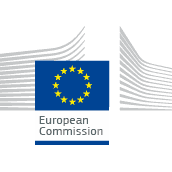
Trusted Smart Surveys 2022
Deadline: Nov 17, 2022
CALL EXPIRED
CALL EXPIRED
Innovation
Disadvantaged People
Environment
IT
IT Applications
Research
Statistics
Privacy
Web
This is an EU call for applied research grants in the area of official statistics and in particular ‘Trusted Smart Statistics’.
The mission of official statistics is to provide a quantitative representation of the society, economy and environment for purposes of public interest, for policy design and evaluation, and as basis for informing the public debate. The relationship between citizens and official statistics is twofold: citizens are both subjects and (potential) recipients of official statistics inasmuch statistics are made about the citizens and for the citizens but rarely with the citizens.
Rapid and transformative developments of the Internet-of-Things and, more generally, the use of new data sources and the penetration of digital technologies into everyday life, represent fundamental challenges, opportunities, threats and responsibilities for official statistics in particular in respect to the citizen participation and the (re)use of data the citizen produce, but also the way they value, consume and interact with official statistics producers.
Citizen demands more participation in the societal processes that concern them, not least because technologies enable forms of participation that were not there before. Moreover, societal processes that are successful involving citizens gain public acceptance and legitimacy. There is an increasing demand for citizen engagement in policy design and evaluation, while “citizen science” initiatives bring citizens closer to the societal process of “science”.
Trusted Smart Statistics:
In a world impregnated with smart technologies, Trusted Smart Statistics can be seen as a new model for the production of official statistics. Their production rely on smart technologies that optimise the physical operation of appliances and consumer devices enabling real-time, automated, interactive compilation of data through transformation of ‘raw signal’ into ‘information’. In addition, the workflows are auditable and transparent, they preserve privacy and safeguard statistical confidentiality of the output to ensure not only the validity and the accuracy of the outputs, but also to create trust and conditions of participation of data subjects increasing the degree of trustworthiness and promoting social acceptance. In the context of Trusted Smart Statistics we may consider 4 main sources of data: smart survey data, publicly or privately held data, citizen science data and data available on the web.
Trusted Smart Surveys:
In the traditional model of statistical surveys, citizens play a dual role. On the input side of statistical production, citizens are asked questions (about their individual status and behaviour), as respondents in surveys and censuses. On the output side they receive statistics (about the collective status and behaviour of the whole population), as direct or indirect recipients of the published statistical information.
Several National Statistical Institutes, within and outside the European Statistical System (ESS), have defined the vision of ‘trusted smart surveys’ to serve as a lighthouse to modernise their traditional data collection in view of combatting the decline of data subject participation and to improve efficiency and quality of the statistical production process and outputs. Additional initiatives aim to exploit the enhanced possibilities offered by smart and cryptographic technologies. On the one hand, data collections can be based on smart personal devices and involve (continuous, low-intensity) interaction with the respondent and her personal device(s). It can combine (inter)active data provided explicitly by the respondent (such as responses to queries, or shared images) together with passive data collected in the background by the sensors (e.g. accelerometer, GPS) of the same device or by other devices within the personal sphere of the respondent. On the other hand, it strives using state of the art technological solutions to protect personal data e.g. Privacy Enhancing Technologies (PET), ensuring full transparency and auditability of data processing methods and algorithms.
The ESS is paving the way for disruptive innovation transforming data collection methods and eventually the production systems of official statistics. This innovation crosses the borders of statistical domains and specific surveys. Its implementation aims to benefit multiple statistical domains and multiple NSIs. However, in view of its adaptation to different national contexts, solutions should be modular and composable. Services implementing a set of common functions should be configurable and can be used to build particular instances of a trusted smart survey.
The ESS has carried out several explorations and Proof-of-Concept (PoC) projects, at both national level and European level for few of the components of Trusted Smart Surveys. For the latest developments, information can be found on the CROS portal ESSnet Smart Surveys. In particular, the specific project has released a conceptual framework and a reference architecture for Trusted Smart Surveys that provides the ground for further development and research. In addition, the project has made some initial exploration on the use of gamification, machine learning, geolocation, etc. in specific surveys, as well the possibilities to use PET.
In the context of citizen science, air quality, traffic and other data mostly at local level have proven to be useful as well as in some international projects (e.g. solar panels and solar power yields). Admittedly, the ‘worlds’ of data sources – surveys, privately held data and citizen science - are converging with respect to the required level of engagement of citizens. The Trusted Smart Survey concept paves the way for official statistics to move towards a) collaborative projects, i.e. National Statistical Institutes design citizen science projects and collaborate with citizens/volunteers, and even more towards b) co-creation of projects i.e. National Statistical Institutes and citizens/volunteers design together a citizen science project.
Public link: Only for registered users
 EC - Single Market Programme (SMP)
EC - Single Market Programme (SMP)
Please Log In to See This Section